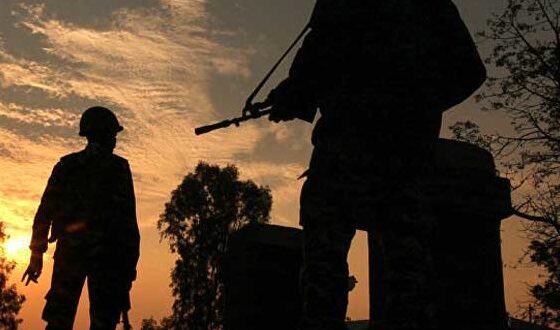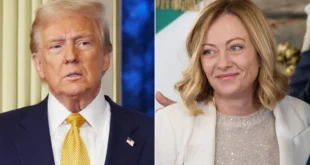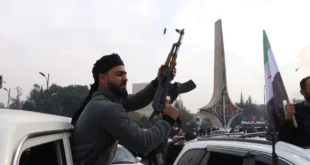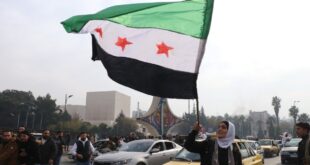Timofey Bordacev
he dramatic events taking place in Eastern Europe have lead to a truly massive military escalation in relations between the nuclear superpowers, so we can hardly look to the future with optimism or seriously think about the likelihood of a new international order, such as those that have arisen repeatedly in the history of clashes of states in international politics. However, for the time being, we can assume that what is happening will have a stabilising effect in relation to the orders that emerged as a result of the Cold War, correcting existing distortions, but not eliminating their fundamental basis.
In this case, no matter how frightening the already-observed consequences may look, both for Russia or Europe, and indirectly for the rest of the world, their practical expression will affect the specific forms and manifestations of interaction between states. This, in fact, may be of interest to us now, since the most radical scenario makes any reasoning a speculative waste of time.
So far, most optimistic observers proceed from the assumption that the most significant continuation of the military-political crisis will be a fundamental split between Russia and the West, the consequences of which will affect, to one degree or another, all the states of Eurasia. Those measures of economic and political pressure that the United States and its allies are now applying to Russia in terms of their size and scope cannot yet be compared with a full-fledged blockade, although they are approaching it; there may turn out to be such a blockade in the coming months.
In this case, even if such a blockade is of a hybrid nature and allows companies to retain part of their presence in each other’s markets, we’ll enter a fairly long period of absence of rules in the global economy and international politics, and their role will be played by the ability of states to exert mutual forced influence. The most relevant issue in the long term will be the very likelihood of the return to world affairs of shared rules and norms, which have a universal and recognised source.
In other words, in the coming years, the main regulator of political and economic interaction will be the ability of governments to find solutions that are beneficial for themselves in an anarchic environment dominated by the rule of the strong. This is not to say that such circumstances are particularly comfortable for most of the states around Russia, including even powerful China, whose rule for decades was not to adapt the existing norms to suit their interests, and not to act in the absence of any norms in principle. As for the less important countries, for them the likely benefits will be offset by the constant tension resulting from their inability to exert even theoretical influence on the behaviour of the most powerful.
This means that, in the absence of a direct threat of territorial encroachment from outside, the countries can hardly expect to secure their interests through permanent systems of interaction based on market logic and the abstract universal desire for prosperity. Any opportunities will be vulnerable to forces so powerful that the long-term planning of one’s life will become almost impossible. The fact that Western countries preferred the military scenario of restructuring Europe’s security architecture, with which Russia was forced to agree, shows that no one can boast of confidence in the future, and any agreements will easily be sacrificed to the priorities of the stronger. Therefore, in a hypothetical future, for Russia and China, the two most important powers of Eurasia, it will be important to answer the question of how they are able to create at least relative confidence in their environment. For the neighbouring countries themselves, it will be important to assess the potential risks arising from one or another intensity of cooperation.
An important issue will be the fate of those international institutions that have emerged in Eurasia over the past decades – the Shanghai Cooperation Organisation, as well as narrower associations around Russia – the Eurasian Economic Union and the Collective Security Treaty Organisation. In all three cases, participating countries will need to redefine the role and place of these institutions in their own struggle for survival, as well as adapt their behaviour to the emerging conditions. So far, they all look like local systems for maintaining minimal stability in the face of a rapidly collapsing international order. However, to count on the fact that the consequences of this collapse would not affect them, of course, would be naive – everything that happens is putting too much pressure on at least one of their most important participants.
Therefore, already now the member countries of these associations need to think about how their work will continue after the events in Eastern Europe reach a certain fixed point. First of all, because the use and usefulness of these tools depends on their adaptation to the new conditions that are emerging before our eyes. However, the future significance of the institutions of cooperation in Eurasia cannot be determined according to a single plan – because without the creation of complete isolation from the outside world, the international environment in the coming years will not at all contribute to serious planning.
If we can talk at all about the potential of institutional cooperation amid the new conditions, the most significant place among regional organisations can continue to be occupied by the SCO. Moreover, in addition to the tasks of diplomatic interaction, this organisation will, apparently, build its activities in the new conditions at three levels. First, there is a lot of work to do to adapt existing projects and practices to the new conditions. Here we are talking, of course, about interaction with measures of large-scale economic pressure exerted by the West on one of the founding members of the SCO – Russia. The practical consequences of these measures will harm the economies, social systems and stability of all SCO countries, including the most economically powerful one, China. However, properly, the SCO states have an opportunity to intensify their practical cooperation in the name of the common good.
Second, whether we like it or not, the SCO countries under any conditions will have to jointly address issues whose existence is of an objective nature. These are the so-called “common challenges” that need to be answered in a broad regional context. These problems include issues of food security, environmental problems, both those common to the region and local, biological security and preventing threats associated with the development of biological weapons in the West, as well as maintaining a free and secure information environment. All these problems either exist regardless of the current military-political situation between Russia and the West, or have been caused by the actions of the United States and its allies in those areas where they have been able to build up serious advantages over the past decades.
Finally, thirdly, if certain and necessary conditions arise, the SCO countries will be able to start moving towards a vision of a common future and the development of the Eurasian macro-region as a whole. Taking into account the fact that the general outlines of the international order in the 21st century are now completely indefinite, and the established ideas about what criteria international organisations should meet are inevitably being revised, it is difficult to say what, how and on what scale the SCO will have to function in the future in order to become an important tool for solving long-term development problems for its participants. Therefore, this group of issues will, in all likelihood, be resolved on the basis of the already emerging practices of interaction in the first and second areas of interest to us.
 Geostrategic Media Political Commentary, Analysis, Security, Defense
Geostrategic Media Political Commentary, Analysis, Security, Defense





